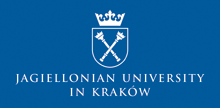Speaker
Description
In the last decades hadron therapy has become an important cancer treatment modality. Therefore, research towards improvement of quality assurance and new online treatment monitoring methods has intensified. Prompt gamma imaging (PGI) is one of the most promising techniques for real time monitoring of deposited dose distribution. Recent development in production of inorganic scintillators resulted in variety of materials, many of which show excellent timing properties and light yield. Moreover, due to large densities and Zeff, those materials are well suited for the detection of a few-MeV gamma radiation emitted as a by-product of hadron therapy. Such scintillators, when manufactured in a form of thin fibers and combined with modern silicon photomultipliers (SiPMs), allow for compact and granular detector designs. Thus, heavy inorganic scintillators seem to be suitable for PGI detectors, such as Compton cameras.
Within the SiFi-CC project we investigated properties of heavy inorganic scintillating materials for their future application in fiber-based Compton camera. The study was focused on lutetium based crystals (LuAG:Ce, LYSO:Ce), as well as recently developed GAGG:Ce:Mg material. All samples had an elongated, fiber-like shape with 1 x 1 mm2 cross section and 100 mm length. The following properties of the materials have been investigated: attenuation length of the scintillating light, timing characteristics, energy resolution and light output. Additionally, in order to optimize performance of the scintillators an influence of different coating types has been investigated.

